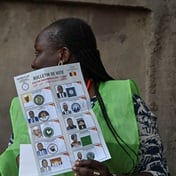- On Tuesday, Sudan's army intensified efforts to gain ground in the capital Khartoum in some of the heaviest fighting since the start of a conflict.
- The army has launched air strikes and used heavy artillery since Monday to try to take a bridge across the Nile used by the rival Rapid Support Forces.
- Since the war broke out, more than 4 million people have been displaced, including over 900,000 who have fled to neighbouring countries.
Sudan's army on Tuesday intensified efforts to gain ground in the capital Khartoum in some of the heaviest fighting since the start of a conflict with a rival military faction that has caused a growing humanitarian crisis.
The army has launched air strikes and used heavy artillery since Monday to try to take a bridge across the Nile used by the rival Rapid Support Forces (RSF) to bring reinforcements and weapons from Omdurman to the other two cities that make up the wider capital, Bahri and Khartoum, residents said.
The RSF, which occupied much of the capital at the outbreak of fighting in mid-April, responded forcefully, resulting in heavy clashes in residential neighbourhoods and civilian casualties and displacement.
Neighbourhood activists in eastern Omdurman said at least nine civilians had been killed.
"The situation in Omdurman is terrifying," Nader Abdullah, a 52-year-old resident, told Reuters by phone. "Gunfire, the sound of artillery, and air strikes ... there's bombardment in every direction."
READ | Child survives, 9 killed in civilian plane crash in Sudan, as war-hit capital left hungry
The war broke out four years after the overthrow of Omar al-Bashir during a popular uprising, as tensions between the army and the RSF, which jointly staged a coup in 2021, erupted over disagreements about a plan to transition to civilian rule.
Both sides have claimed military advances in recent days but there are no signs of a decisive breakthrough. Efforts led by Saudi Arabia and the United States to secure a ceasefire have stalled.
More than 4 million people have been displaced, according to the United Nations, including over 900,000 who have fled to neighbouring countries already grappling with conflict and economic crises.
What's left to win?
The highest number - more than 377 000 - have fled to Chad from the western Sudanese region of Darfur, where witnesses have blamed Arab militias aligned with the RSF for a wave of ethnically targeted attacks against non-Arab groups.
People arriving in Chad from Mornay in West Darfur by foot, belongings piled onto horse-drawn carts or balanced on their heads, said they had been subject to rape, theft, and nighttime assaults and arrests.
"Whoever finds a way gets out, and whoever does not remains in suffering," said one refugee who gave his name as Haroun.
As a result of the conflict, hunger has been spreading and civilian casualties rising. With humanitarian funding and access limited, more than 300 deaths had been recorded between May 15 and July 17 due to measles and malnutrition, mainly among children under five, the UN refugee agency said.
"As many families have been on the move for weeks – with very little food or medicine – rising malnutrition rates, disease outbreaks and related deaths continue to be observed," UNHCR spokesman William Spindler told a briefing in Geneva.
With more than 4 million people now forcibly displaced by the Sudan crisis, we are deeply worried about deteriorating health conditions.
— UNHCR, the UN Refugee Agency (@Refugees) August 8, 2023
Find out more: https://t.co/hvZy1uMV8l pic.twitter.com/EObdlTbZLa
The arrival of seasonal rains has caused displacement in some parts of Sudan and concerns that water-borne diseases will spread further.
On top of the fighting, residents in the capital have had to contend with extended power and water cuts, rampant looting by the RSF, the collapse of health services and shortages of food.
"Neither side is able to win outright and what we hear them say in the media is the opposite of what's happening on the ground," said Mohamed Usher, a 37-year-old living in southern Khartoum.
"What's left in Khartoum for them to win anyway? The institutions are destroyed, the universities, the markets are all destroyed."




 Publications
Publications
 Partners
Partners























